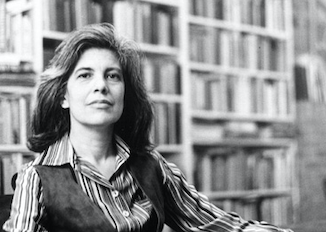The Art of Fiction No. 143
On Yeats’s assertion that one must choose between the life and the work: “Of course, if by life you mean life with other people, Yeats's dictum is true. Writing requires huge amounts of solitude.”

Without Susan Sontag—essayist, critic, film director, novelist, fierce champion of the arts—postwar American intellectual life would look very different. Born on January 16, 1933, in New York, and raised primarily in Tucson and Los Angeles, Sontag entered the University of California, Berkeley, at age sixteen before transferring to the University of Chicago, graduating in 1951. In 1963, she published her first novel, The Benefactor. But it was Sontag’s landmark 1966 essay collection, Against Interpretation, that would make her name: “In place of an hermeneutics,” she famously declared at the end of the title essay, “we need an erotics of art.” The collection also included “Notes on Camp,” which explored queerness and the notion of camp in art. Life as a public intellectual followed, along with more career-defining essay collections: Styles of Radical Will (1969), On Photography (1977), Illness as Metaphor (1978), and AIDS and Its Metaphors (1989). From 1987 to 1989, she served as the president of the American Center of PEN. In 1993, she staged a production of Samuel Beckett’s Waiting for Godot in besieged Sarajevo, and would later be made an honorary citizen of the city. In 2000, she published her fourth and final novel, In America, which would go on to win the National Book Award. After a battle with cancer, Sontag died in New York in 2004.
Photo © Lynn GIlbert, CC BY-SA 4.0 via Wikimedia Commons
On Yeats’s assertion that one must choose between the life and the work: “Of course, if by life you mean life with other people, Yeats's dictum is true. Writing requires huge amounts of solitude.”